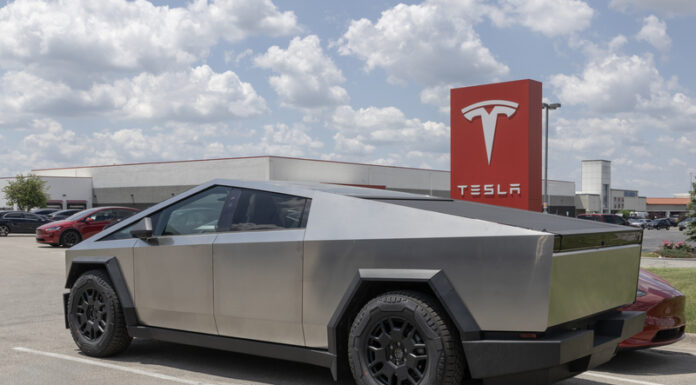A highly decorated Army Green Beret, Matthew Livelsberger, 37, orchestrated his final moments as both a protest and a cry for help, detonating a Tesla Cybertruck outside the Trump International Hotel in Las Vegas, Nevada on New Year’s Day 2025, after leaving behind extensive documentation of his motivations and mental state.
“This was not a terrorist attack; it was a wake-up call. Americans only pay attention to spectacles and violence. What better way to get my point across than a stunt with fireworks and explosives,” Livelsberger wrote in letters discovered on his phone by investigators.
The soldier’s methodically planned final act began with renting the Cybertruck in Denver, Colorado. Before reaching Las Vegas, Tesla engineers helped investigators reconstruct his journey through New Mexico and Arizona charging stations. He had packed the vehicle with fireworks-style mortars, gasoline canisters, and camping fuel, all legally obtained.
“My life has been a personal hell for the last year,” Livelsberger had confided in text messages to former girlfriend Alicia Arritt, 39, an Army nurse he dated in Colorado in 2018. He detailed his struggles with exhaustion and chronic pain that kept him awake, alongside vivid memories of violence from his Afghanistan deployments.
Assistant Sheriff Dori Koren highlighted the extensive nature of the investigation, noting that there is still a significant amount of data to review, including thousands or potentially millions of videos, photos, documents, and web history that require analysis. The explosion injured seven individuals but resulted in minimal structural damage, as the sturdy construction of the Cybertruck absorbed much of the impact.
Among the charred wreckage, investigators found two legally purchased firearms, including a handgun at Livelsberger’s feet, along with his passport, military ID, credit cards, iPhone, and smartwatch. Spencer Evans, FBI special agent in charge in Las Vegas, noted, “Although this incident is more public and more sensational than usual, it ultimately appears to be a tragic case of suicide involving a heavily decorated combat veteran who was struggling with PTSD and other issues.”
Livelsberger’s military career spanned nearly two decades, beginning in 2006. His service included two Afghanistan deployments and missions in Ukraine, Tajikistan, Georgia, and Congo. Most recently, he returned from Germany and was on approved leave. His decorations showcased his valor: five Bronze Stars, including one with a valor device for courage under fire, a combat infantry badge, and an Army Commendation Medal with valor.
His letters revealed complex political views and societal concerns. While expressing that the U.S. was “terminally ill and headed toward collapse,” he advocated for the country to “rally around” President-elect Donald Trump and Tesla CEO Elon Musk. Neither was present during the explosion, both attending Trump’s New Year’s Eve celebration at his South Florida estate.
The timing coincided with another vehicle incident in New Orleans’ French Quarter, where Shamsud-Din Bahar Jabbar, 42, drove a truck into crowds, killing 14 before police fatally shot him. Despite surface similarities, FBI investigators found no connection between the events.
In Colorado Springs, authorities searched Livelsberger’s townhouse, where he lived with his wife and baby. Neighbor Cindy Helwig recalled their last interaction when he borrowed a tool to fix an SUV, describing him as “a normal guy.” Investigators are still piecing together how he managed to shoot himself while simultaneously triggering the explosive materials.








